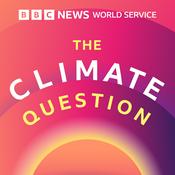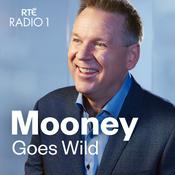Available Episodes
5 of 336
- Freeing ourselves from cars is simpler (and healthier) than we may thinkSarah Goodyear, Doug Gordon and Aaron Naparstek realized that no one was discussing the many cultural factors that have played a role in humanity's car dependency, or the negative impacts this reliance on motor vehicles has on human health and the planet. So they started their own show to do exactly that, The War on Cars. Gordon joins Mongabay's podcast to discuss just how human society got here — and how we might get ourselves out of it — which is also the subject of a new book he co-authored with Goodyear and Naparstek, Life After Cars: Freeing Ourselves from the Tyranny of the Automobile. "We felt that nobody was really covering the car as this overwhelming determinative force in the life of you as an individual, the life of society and nature, politics, culture, everything," he says. Take a minute to let us know what you think of our audio reporting, which you can do here. The Mongabay Newscast is available on major podcast platforms, including Apple and Spotify, and all previous episodes are accessible at our website's podcast page. Mike DiGirolamo is a host & associate producer for Mongabay based in Sydney. He co-hosts and edits the Mongabay Newscast. Find him on LinkedIn and Bluesky. Image Credit: Cover art for the book 'Life After Cars'. Artwork by Alissa Rose Theodor. Courtesy of Penguin Random House. -------- Timecodes (00:00) The War on Cars (05:48) The unseen impacts of cars (25:30) Imagining 'Life After Cars' (33:42) How to decrease car dependency--------41:38
- Indigenous and local communities regain millions of hectares of land via successful legal effortNonette Royo is a lawyer from the Philippines and executive director of The Tenure Facility, a group of "barefoot lawyers" working to secure land tenure for Indigenous, local and Afro-descendant communities across the world. To date, the organization has secured more than $150 million in funding and has made progress in securing land rights covering 34 million hectares (84 million acres) across 35 projects, an area larger than Greece. Royo joins Mongabay's podcast to discuss the organization's success, its recognition as a finalist for the 2025 Earthshot Prize, and why land rights are so crucial both for cultural survival and slowing the pace of global ecological degradation. "This work is really about land tenure, and about land and people. And it is very important because at this point in our world, where we are breaching planetary boundaries, we are still hesitating to invest in the people who protect our land, our forests and our diverse systems," she says. Take a minute to let us know what you think of our audio reporting, which you can do here. The Mongabay Newscast is available on major podcast platforms, including Apple and Spotify. All previous episodes are accessible on the Mongabay website. Mike DiGirolamo is a host & associate producer for Mongabay based in Sydney. He co-hosts and edits the Mongabay Newscast. Find him on LinkedIn and Bluesky. Banner Image: Women of Masaka embark on cassava cultivation. The plantation areas are located in the heart of the community of Mabaka in the Kwango region. Image by Ley Uwera. Courtesy of The Tenure Facility. ---------- Timecodes (00:00) The 'barefoot lawyers' helping secure land rights (06:28) How the legal system can protect nature and rights (10:29) Challenges and successes (15:36) Better mapping tech is helping (27:16) Goals and progress of the Tenure Facility--------39:11
- Madagascar conservation successes hinge on public education and health, famed primatologist saysPatricia Wright, a pioneering primatologist who established the Centre ValBio research station in Madagascar, began her work there in 1986. As the person who first described the golden bamboo lemur (Hapalemur aureus) to Western science, her contributions led to the creation of Ranomafana National Park, now a UNESCO World Heritage Site. She joins the Mongabay Newscast to discuss her conservation breakthroughs and the challenges the island faces during political instability and widespread poverty. Wright has participated in the making of numerous documentaries over the years, including Island of Lemurs: Madagascar, narrated by Morgan Freeman, and recently Ivohiboro: The Lost Forest and Surviving Alone: The Tale of Simone. In this conversation, she describes key findings from the latter two films, including how Ivohiboro, a montane tropical forest surrounded by desert, was unknown to Western science until Wright set foot there in 2016. Films like these are a crucial part of marketing conservation, wildlife and places such as Madagascar, Wright says. "It plays a pivotal role in the public understanding what the real issues are. I think the films [are] very important to get across the idea that there is a biodiversity crisis." Take a minute to let us know what you think of our audio reporting, which you can do here. The Mongabay Newscast is available on major podcast platforms, including Apple and Spotify. All previous episodes are accessible on the Mongabay website. Image Credit: Diademed Sifaka (Propithecus diadema). Image by Rhett A. Butler/Mongabay. ------- Timecodes (00:00) Madagascar's biodiversity crisis (03:49) Establishing Ranomafana National Park (08:23) Surviving Alone: The Tale of Simone (17:22) Exploring the Ivohiboro rainforest (30:41) Challenges and solutions in Madagascar conservation (45:52) The importance of research stations--------52:51
- Mongabay founder reflects on success, Jane Goodall, and moreHello listeners. This week on the Mongabay Newscast, we ask that you take a few minutes to fill out a brief survey to let us know what you think of our audio reporting, which you can do here. Mongabay founder and CEO Rhett Butler was recently awarded the Henry Shaw Medal by the Missouri Botanical Garden and named to the 2025 Forbes Sustainability Leaders list alongside conservation greats such as David Attenborough. The credit for this success belongs to Mongabay, Butler says on this week's podcast. "While my name is on the award, it's for Mongabay. All that Mongabay achieves is not necessarily me. I'm the figurehead," Butler says of receiving the Henry Shaw Medal. Butler also shares his thoughts and reflections on the passing of his longtime friend, and conservation icon, Jane Goodall, through whom he learned to see the value in hope and optimism. "The biggest thing I took away from my relationship with Jane … is the importance of hope," he says. "She was truly a messenger for hope." You can read Butler's obituary for Jane Goodall here. Find the Mongabay Newscast wherever you listen to podcasts, from Apple to Spotify. All past episodes are also listed here at the Mongabay website. Image Credit: The last photo taken between Rhett Butler and Jane Goodall, who shared a friendship for nearly 15 years, at the Forbes Sustainability Leadership Summit in New York. Image courtesy of Sofia Negron. ----- Timecodes (00:00) The importance of hope (08:01) Rhett's awards and Mongabay's impact (12:39) The role of independent journalism (24:18) Expanding Mongabay's global reach (31:44) State of the world's forests--------38:08
- Australia's inspiring 'humpback comeback' and why krill need protectionNews of Australia's "humpback comeback" is making waves globally. Numbers of humpback whales (Megaptera novaeangliae) on the nation's east coast have rebounded to an estimated 50,000 from a historic low of just a few hundred before commercial whaling was outlawed in the 1970s. And wildlife scientist and whale expert Vanessa Pirotta joins the podcast to discuss this inspiring conservation achievement. Pirotta emphasizes this is a good news story that deserves to be celebrated, and that it could also bolster action for other whale species that are struggling, including the southern right whale (Eubalaena australis) and blue whale (Balaenoptera musculus). However, she stresses that vigilant protection for all whale species remains necessary. This good news is tempered by the fact that the key food source for humpbacks in this part of the world is Antarctic krill (Euphausia superba), which is now being heavily harvested by industrial fishing fleets after protections for the species recently lapsed. Pirotta notes that krill are a keystone species for both humpbacks and a much broader array of marine life, including penguins and seals. Pirotta also discusses her cetacean health research based on the collection of "whale snot" (see Mongabay's explainer video about this method, which involves the use of drones, here) and whale monitoring work conducted with Indigenous conservation group Gamay Bay Rangers. Listeners can learn more about her work at vanessapirotta.com and find her book, Humpback Highway, here. Find the Mongabay Newscast wherever you listen to podcasts, from Apple to Spotify. All past episodes are also listed here at the Mongabay website. Image credit: A humpback whale. Image by ArtTower via Pixabay (Public domain). ----- Timecodes (00:00) The 'humpback comeback' (14:50) Why krill need protection (19:29) The Gamay Rangers sharing Indigenous knowledge (28:05) Antarctica and whale snot (32:12) Migaloo the white whale (36:16) How whale populations impact all of us--------42:00
More Science podcasts
Trending Science podcasts
About Mongabay Newscast
News and inspiration from nature's frontline, featuring inspiring guests and deeper analysis of the global environmental issues explored every day by the Mongabay.com team, from climate change to biodiversity, tropical ecology, wildlife, and more. The show airs every other week.
Podcast websiteListen to Mongabay Newscast, Radiolab and many other podcasts from around the world with the radio.net app

Get the free radio.net app
- Stations and podcasts to bookmark
- Stream via Wi-Fi or Bluetooth
- Supports Carplay & Android Auto
- Many other app features
Get the free radio.net app
- Stations and podcasts to bookmark
- Stream via Wi-Fi or Bluetooth
- Supports Carplay & Android Auto
- Many other app features


Mongabay Newscast
Scan code,
download the app,
start listening.
download the app,
start listening.























![Podcast Cosmosis [Formerly The UFO Rabbit Hole]](https://ie.radio.net/podcast-images/175/the-ufo-rabbit-hole-podcast.jpeg?version=c4cfeed14331265219e0263fd62be755644a8cf4)















